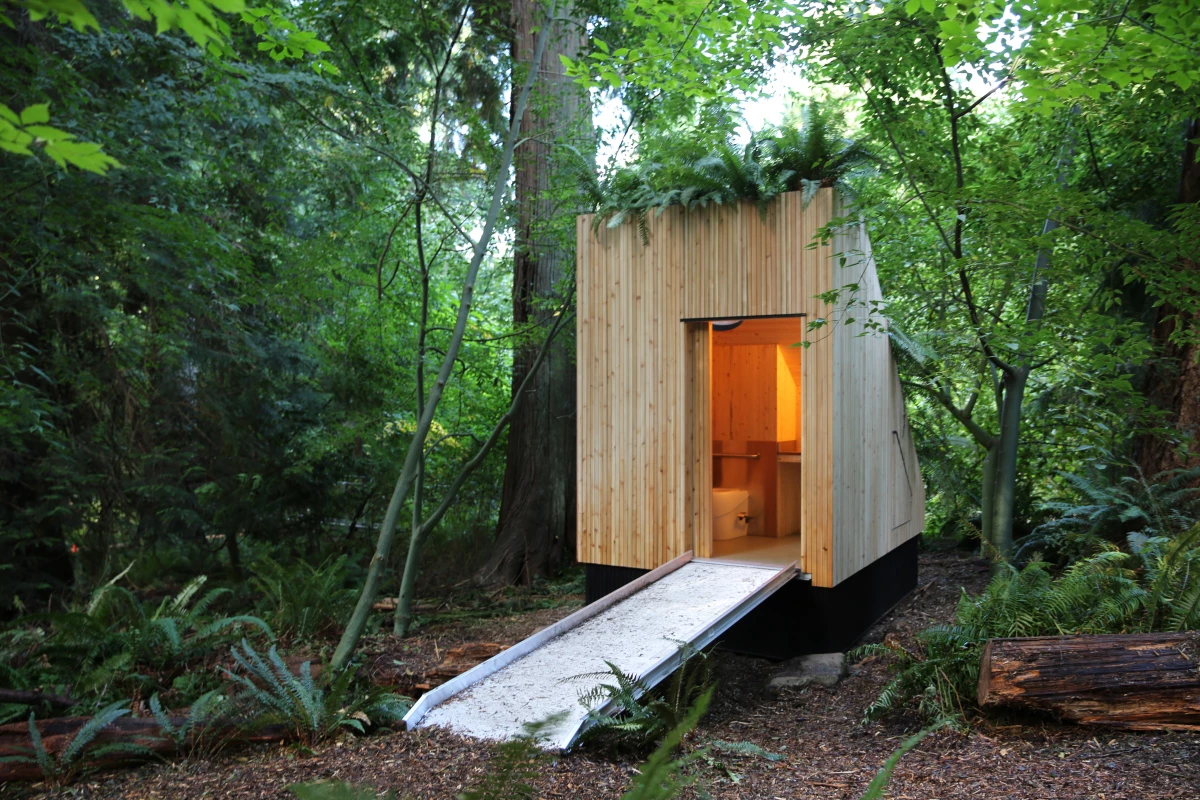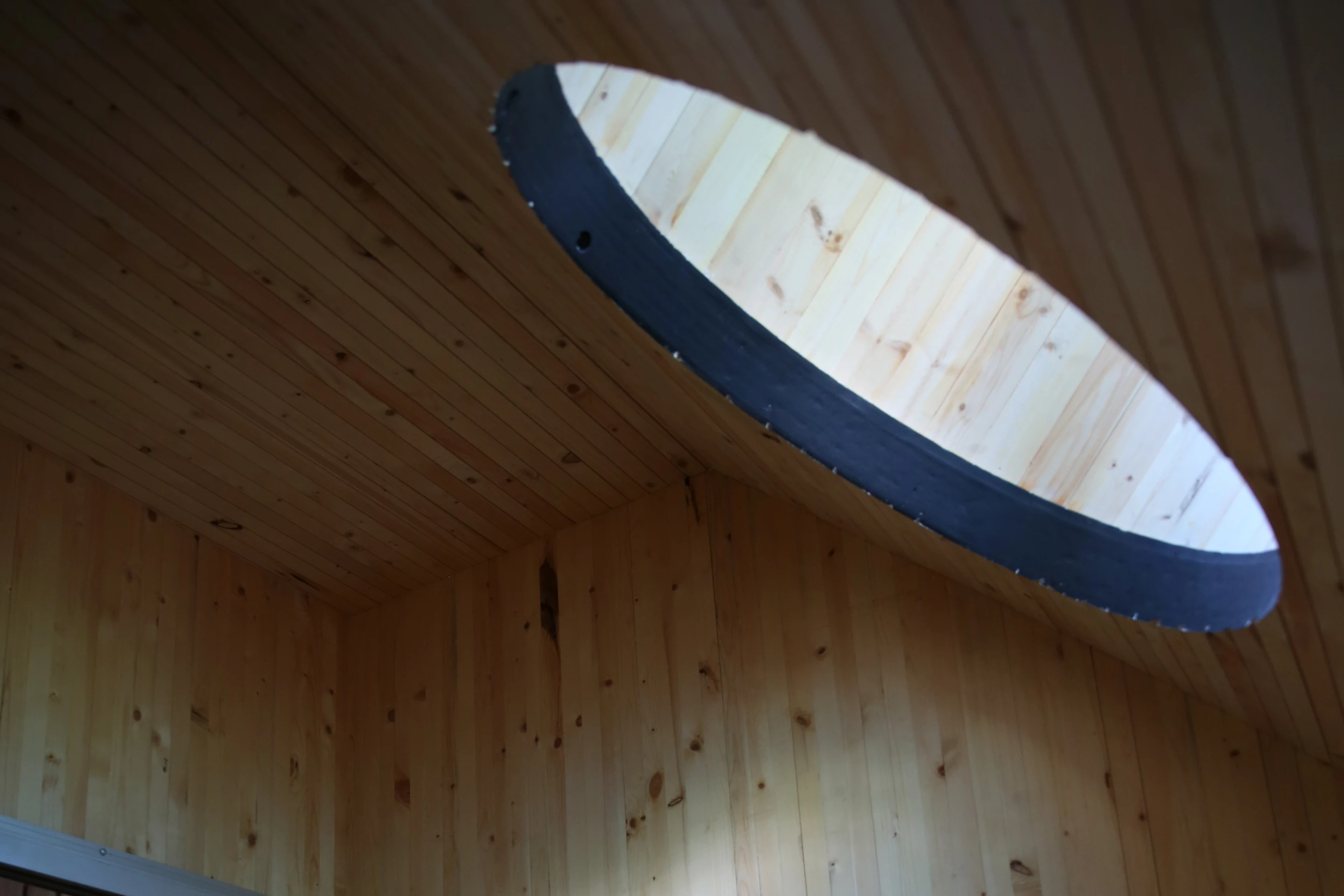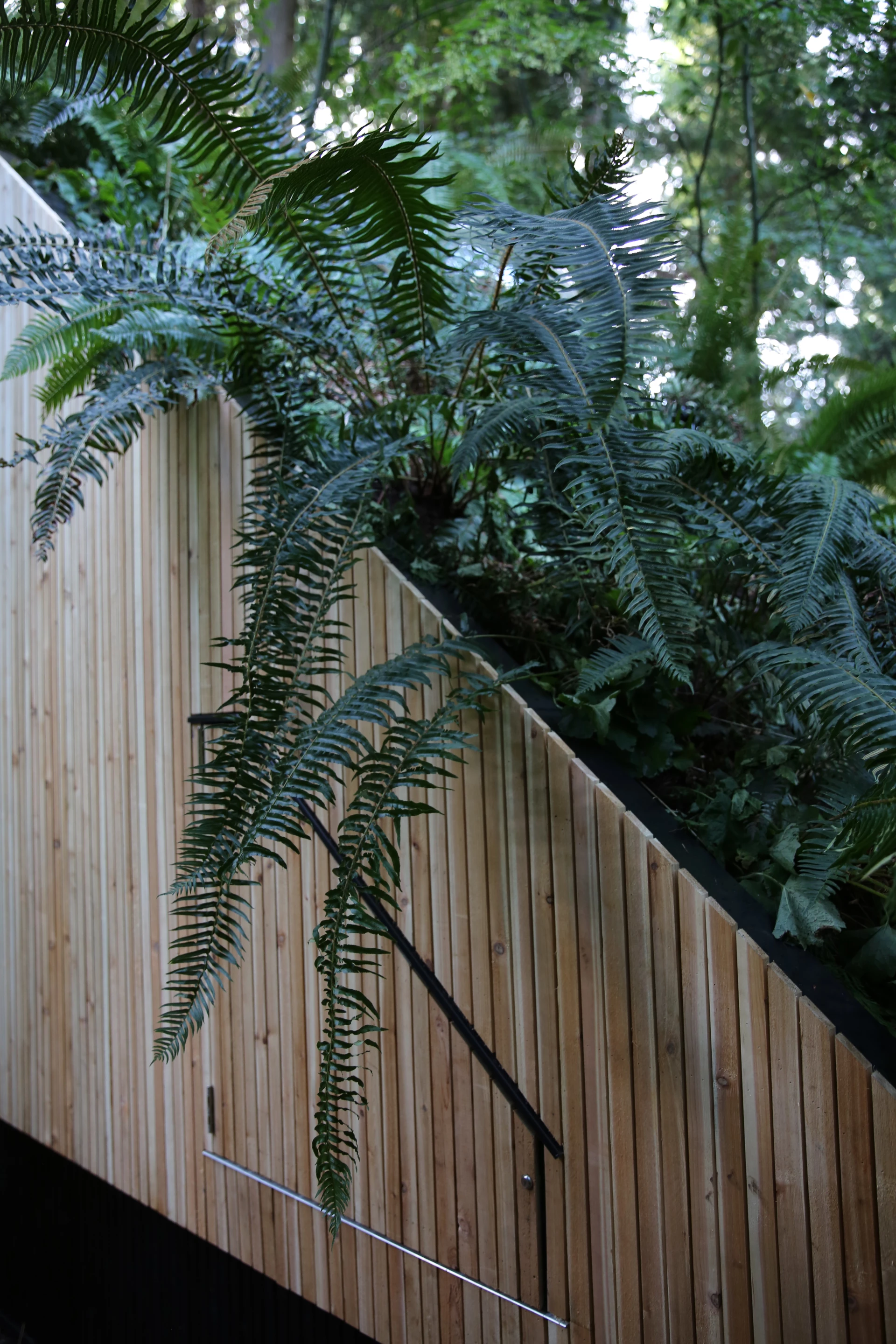Composting toilets are a great idea, but no one likes to think of the waste just sitting there and slowly … fermenting. A new eco-friendly toilet gets around that problem by using mushrooms to facilitate the composting process, plus it requires no water or electricity to do the job.
Known as the MycoToilet, the proof-of-concept outhouse was designed and built by a team of scientists at Canada's University of British Columbia (UBC). It was officially opened for use this Friday (Sept. 26) in the university's Botanical Garden.
The transportable structure itself features cedar-clad timber walls, stainless steel fixtures, a planted roof with a skylight, a solar-powered ventilation system, and a ramp for wheelchair accessibility. It's designed to be installed in areas such as parks, campgrounds and remote communities, where it can operate without plumbing or other infrastructure.
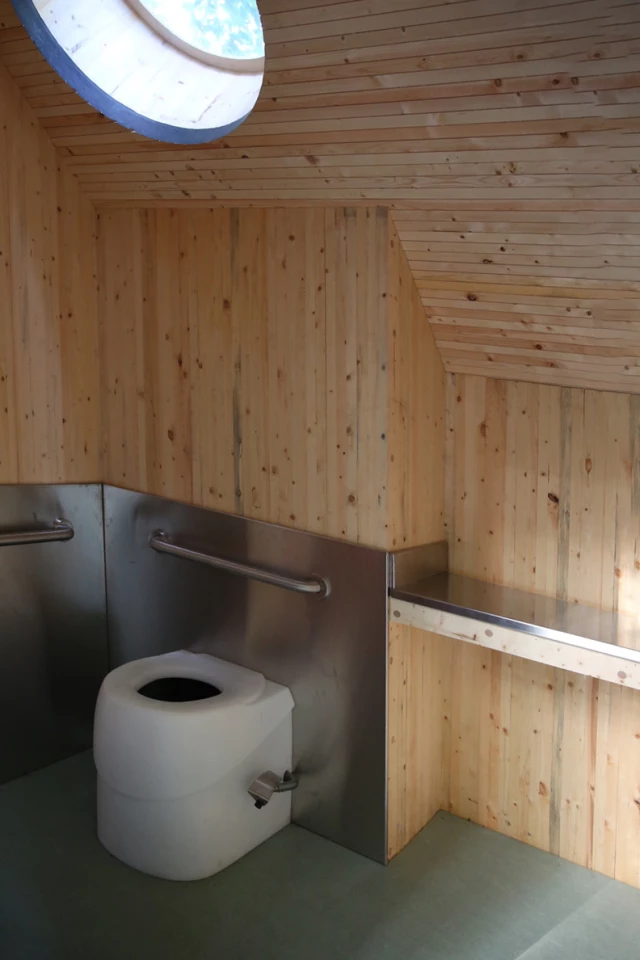
Once the user's waste has passed through the actual toilet itself, it goes into an area in the back of the MycoToilet where the solid and liquid waste are separated. The solid waste proceeds into a compartment lined with mycelium, which is the network of (ordinarily underground) root-like structures that link mushrooms and other fungi together. There, it's transformed into soil.
"Fungi are very good at breaking down biomass, including human and animal waste," says UBC's Dr. Steven Hallam. "They produce enzymes that transform material into simpler compounds while supporting microbial communities that accelerate decomposition. No added water, electricity or chemicals are required."
Importantly, lab tests have shown that use of the mycelium also removes over 90% of the odor-causing compounds from the composting process. The liquid waste, meanwhile, goes into a holding tank. We're told that under ideal conditions, it will eventually become self-sterile so that it can be used for irrigation.
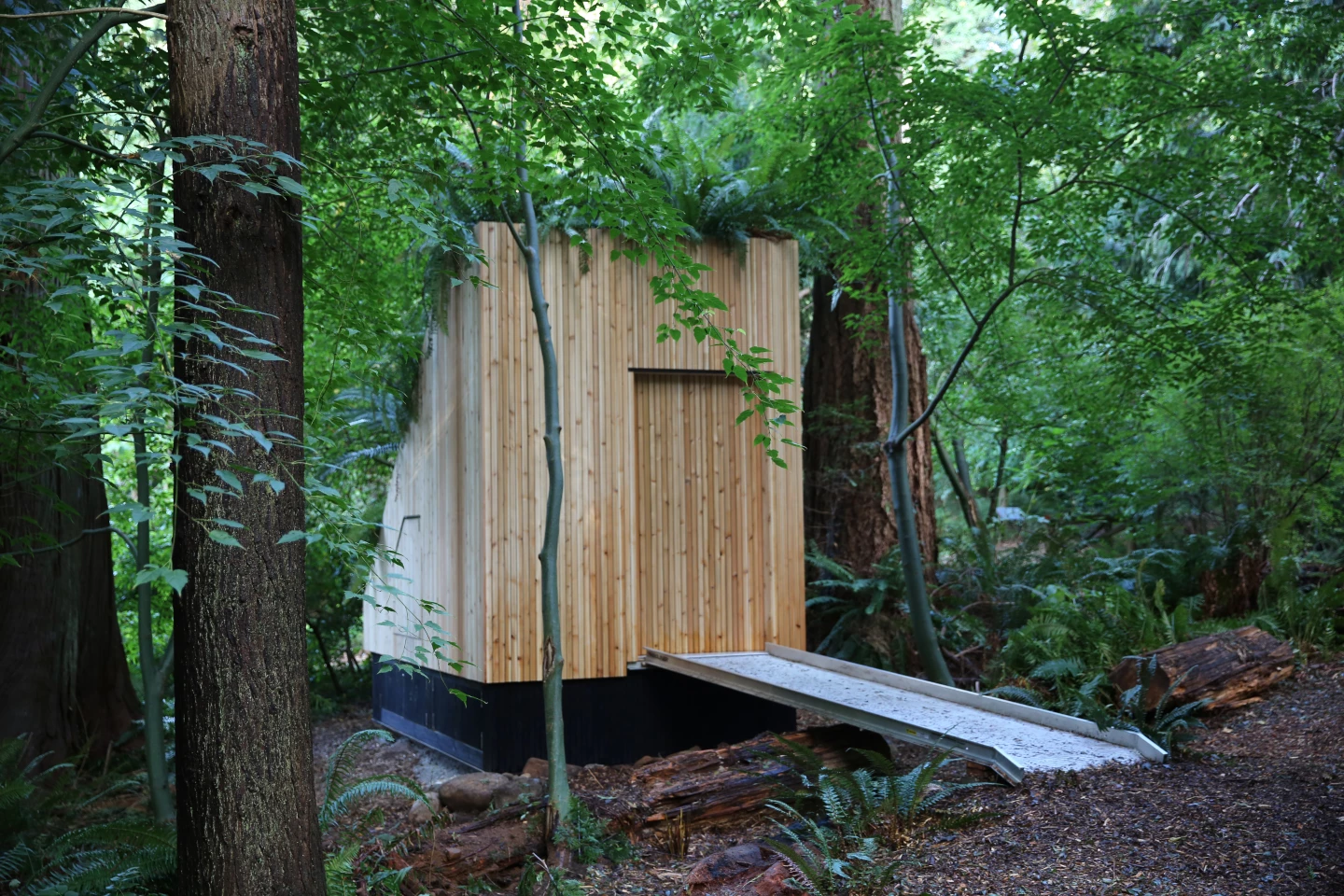
This Friday's launch marks the beginning of a six-week pilot project. It is hoped that once the MycoToilet subsequently enters permanent use, it will produce roughly 600 liters (158.5 US gal) of soil and 2,000 liters (528 US gal) of liquid fertilizer annually.
"We wanted to turn a daily routine everyone knows into a pleasant experience that reminds us of our connection to ecological cycles," says the project leader, Assoc. Prof. Joseph Dahmen. "Composting toilets often carry negative associations. We aimed to create a system that’s clean, comfortable and easy to use."
Source: UBC
